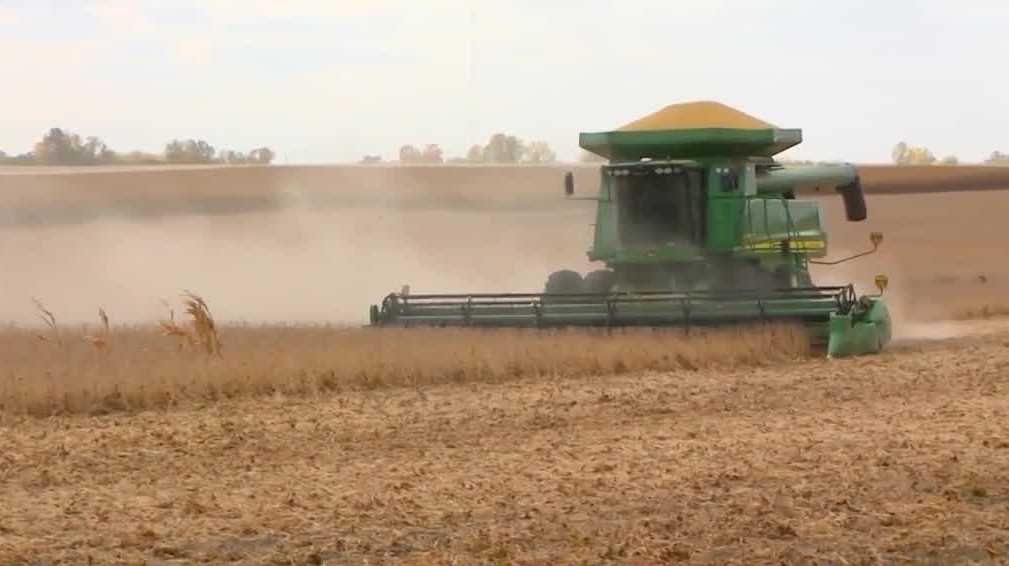Iowa farmers sound alarm as Trump administration backs $20 billion Argentina bailout

By Pepper Purpura
Click here for updates on this story
POLK COUNTY, Iowa (KCCI) — Iowa farmers are voicing frustration and concern after President Donald Trump hosted Argentine President Javier Milei at the White House this week — just days after announcing a $20 billion U.S. bailout for Argentina aimed at stabilizing its financial markets.
The bailout, structured as a currency swap through Argentina’s central bank, comes as a trade dispute is costing U.S. soybean producers sales to the South American nation —raising concern that the administration’s focus on foreign financial aid is coming at the expense of American farmers.
“Our farmers are angry,” said Polk County farmer and president of the Iowa Farmers Union Aaron Lehman. “We’re facing a financial crisis because we’ve been avoiding common-sense trade policies and instead have started trade wars with many countries around the world.”
Lehman said the bailout will directly benefit Argentina’s agricultural industry — one that competes with U.S. farmers for access to the Chinese market.
“Now the U.S. Treasury is helping Argentina with a $20 billion bailout that is directly helping Argentine farmers sell their soybeans to China, undercutting the Chinese market for U.S. soybeans,” he said.
Treasury Secretary Scott Bessent defended the deal, saying in a post last week that “Argentina faces a moment of acute illiquidity” and that the U.S. is “prepared to take exceptional measures to provide stability to markets.” Trump praised the move during Milei’s visit, calling Argentina “on the verge of great economic success.”
But Iowa agriculture leaders say the decision couldn’t come at a worse time.
China, once the top buyer of American soybeans, stopped purchasing U.S. crops in May in response to Trump’s ongoing trade dispute. Since then, China has ramped up imports from South America — particularly from Argentina, which recently cut export taxes to make its soybeans more competitive.
Chad Hart, an agricultural economist at Iowa State University, said the ripple effects are already visible.
“When you add all this together, it leads to falling soybean prices, which means lower farm incomes,” Hart said. “At the same time, they’re facing some of the highest costs they’ve ever seen.”
Lehman added that farmers are also still waiting for a promised domestic aid package — one that’s been delayed amid the ongoing government shutdown.
“In the meantime, a promised aid package to U.S. farmers sits on the government’s back shelf,” he said. “This is putting U.S. farmers at risk. How can the current administration justify a bailout for Argentina, continue a trade war with China, and then fail to deliver a promised aid package to U.S. farmers?”
Hart said the strain extends beyond individual farms.
“Agriculture is dragging the general economy down in Iowa,” he said, pointing to layoffs at John Deere and a rise in farm bankruptcies.
Lehman said the state’s leaders need to step in.
“Our Iowa congressional delegation should be demanding answers,” he said.
White House sources said the agreement is also contingent on President Javier Milei remaining in office and maintaining his market-reform agenda, which the Trump administration views as essential to the deal’s success. U.S. officials emphasized that continued U.S. financial support depends on Milei’s government upholding its austerity measures, anti-corruption efforts, and commitment to economic liberalization aimed at restoring investor confidence in Argentina.
Please note: This content carries a strict local market embargo. If you share the same market as the contributor of this article, you may not use it on any platform.